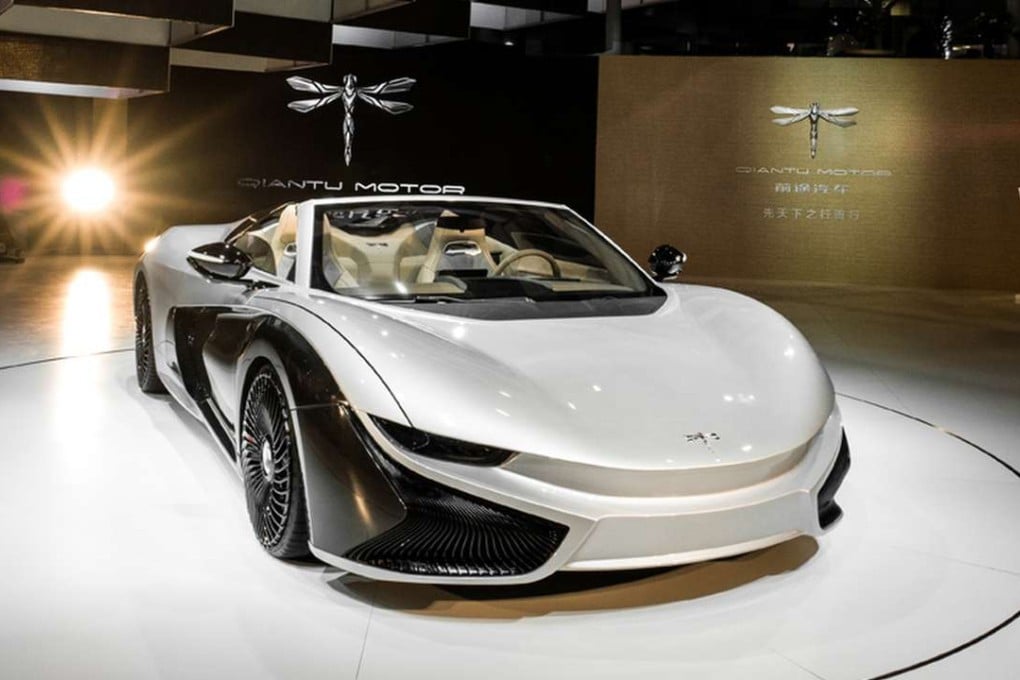Qiantu to start making prototype high speed sports car next month
Chinese carmaker to begin production of K50 for testing as it aims to grab a share of the US electric vehicle market

Chinese car design company CH-Auto Technology is poised to begin making prototypes of its all-electric sports car with a top speed of 200 kph in September, as it aims to give Tesla Motor’s Model S and General Motor’s Volt a run for their money.
The K50, marketed under the Qiantu Motor brand, will be a two-seat roadster featuring a carbon fibre monocoque body similar to those used by Lamborghini’s Aventador sports cars. Powered by two electric motors with 400 horsepowers and 650 nm of torque, the K50 can accelerate up to 100 kph from standstill in 4.6 seconds, according to its specifications.
Qiantu will begin production next month of a few dozen K50s for testing, before ramping up production to a few thousand cars later as it prepares to make its debut in the US market, the world’s second largest by volume.
“We attach great importance to the US because of its size, and it is also an open market where we see opportunities for our car,” said Qiantu’s chairman Lu Qun, in an interview with the South China Morning Post. “We want to be there and compete with others.”

The K50 has a clean and straight side profile which, together with its short overhang front and rear-end, make the lines of the roadster look more balanced.